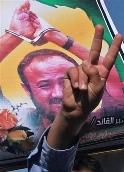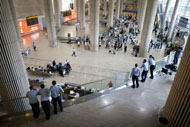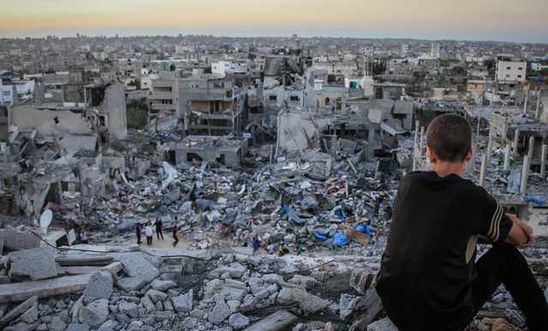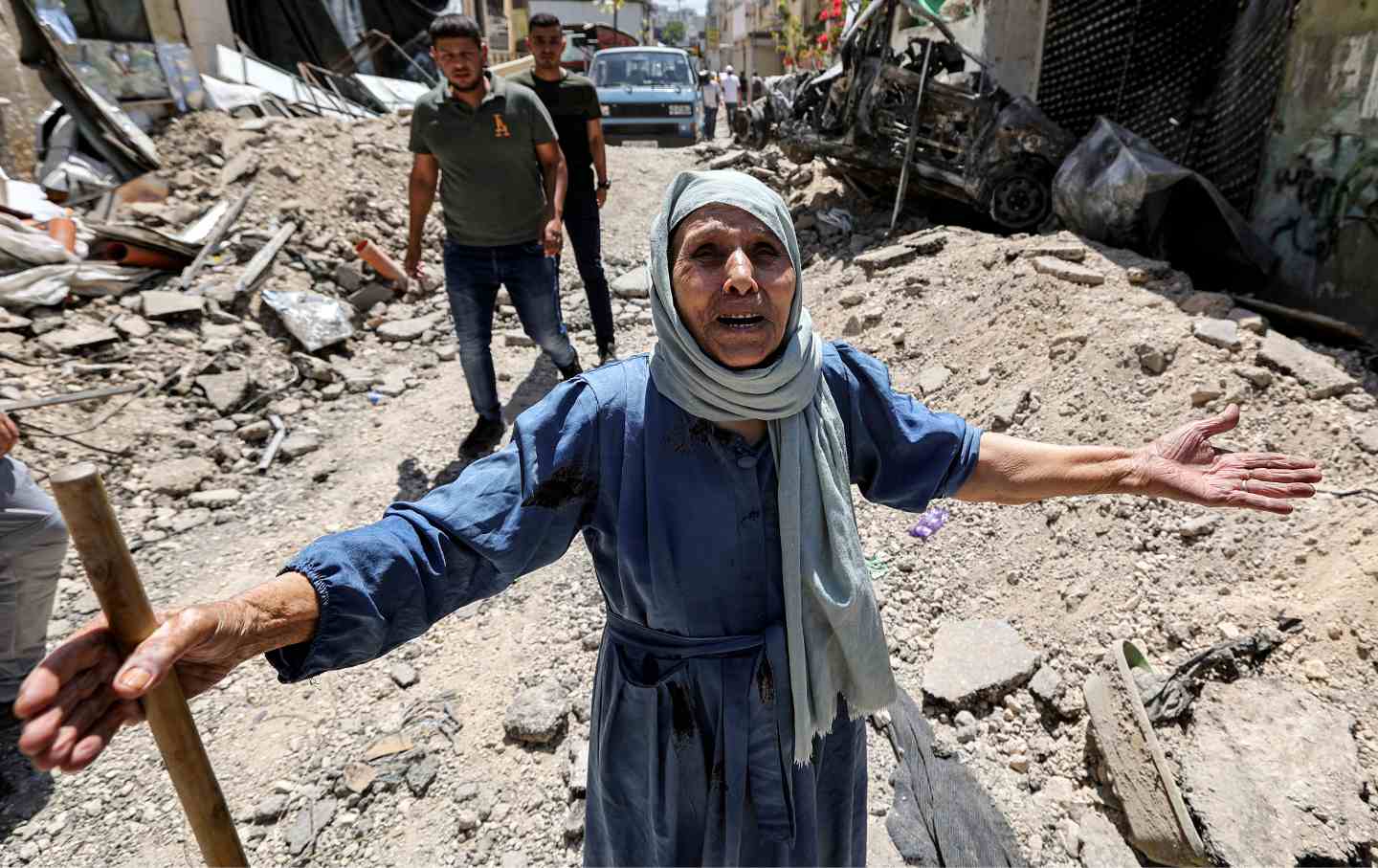Ever since Israeli Corporal Gilad Shalit was captured by Palestinian groups on the Gaza Strip border on June 25, the two arch enemies – Hamas and Israel – have been engaged in a continuous cycle of battle and bartering. The moment Shalit was captured alive, Hamas knew it had caught the golden goose and was not about to let it go.
The concept of prisoner exchanges is no anomaly in the history of the Arab/Palestinian-Israeli conflict. The most significant Palestinian-Israeli prisoner exchange took place in 1985 between Israel and the Popular Front for the Liberation of Palestine-General Command under Ahmad Jibril, when 1,150 Palestinian political prisoners were released in exchange for three Israeli soldiers taken captive in Lebanon.
HizbAllah, currently holding three Israeli soldiers, has also had a history of prisoner swaps with Israel, the largest of which took place in 2004 where 436 prisoners were released from Israeli prisons, including 400 Palestinians.
Since the June 25 operation, Israel has tried to cut its losses – several attempts to rescue Shalit have been unsuccessful – while Hamas continues to milk benefit from this lone soldier as much as it possibly can.
With Egyptian mediation, it seems Israel and Hamas may soon reach a final deal. Like any settlement reached between enemies, the end result is the product of compromise. Since the go-get, Hamas has demanded the release of 1,400 prisoners, first and foremost women and children, along with prisoners with lengthy sentences including those imprisoned before the Oslo Accords in 1993. Hamas is also demanding the release of prominent political figures such as Fateh West Bank Secretary Marwan Barghouthi, who is currently serving five consecutive life sentences.
Israel, on the other hand, was hoping to get its soldier out alive without paying any price. It carried out not only the largest, but bloodiest incursions into the Gaza Strip to secure Shalit’s rescue, literally mowing through Palestinian cities, villages and refugee camps on a destructive rampage that left nothing in its path intact. Hundreds of Palestinians were killed in the invasions, many of whom were unarmed civilians and the Gaza Strip will now need several years to repair the severe damage to its infrastructure as a result of Israeli air and ground strikes. Still, Israel’s efforts were to no avail and the whereabouts of Shalit, now in captivity for over five months, remain unknown.
Over the past week, there have been Israeli media reports about the possible release of hundreds, maybe even 1,000 Palestinian prisoners in exchange for Shalit. While Israeli sources quoted in the Hebrew daily Ha’aretz have said it “would be hard to envision a scenario in which Israel agrees to release Marwan Barghouthi,” it did not rule out the Fateh leader’s name altogether, conceding that the list of names has not yet been discussed.
Still, whether the number of released prisoners ranges in the hundreds or thousands – there are approximately 10,000 Palestinian prisoners in Israeli jails at present – the release of any prisoner can be considered a victory, since like so many other once-burning issues on the Palestinian political agenda, the prisoner issue has been shoved aside all too many times.
Today, with Hamas and Fateh leaders so caught up in their senseless game of musical chairs, a prisoner exchange may be the only victory Hamas can claim before its inevitable demise. However, what Hamas leaders have not taken into consideration is what kind of Palestine these prisoners are going to find themselves in once they are no longer behind Israeli bars.
It is all good and well that Hamas is using the Shalit card to secure the largest number of prisoner releases as possible, especially women and minors. But one cannot help but cringe at the thought that these same leaders have not applied themselves with similar fervor for the overall good of the people. These prisoners, who fought for a free and united Palestine, will return to the dark reality that this dream is still far from sight, not only because the Israeli occupation is still in place but because their own leaders are too busy in their mindless cockfight over positions and titles to embrace what is truly important.
When the prisoners are released, who will provide jobs for them, security for their families and food on their tables? If the economic siege remains in effect and Hamas and Fateh continue to accuse the other of corruption and domination, where does that leave everyone else?
It is imperative upon any leadership to act responsibly towards its citizens. Presently, that responsibility lies mainly with Hamas, since it heads the government. While Hamas’ unwavering political positions may seem noble to some, the movement must also realize they are no longer the opposition. While Fateh is certainly not blameless in this debacle for a myriad of reasons, responsibility still lies mostly with Hamas to envision and embrace the bigger picture and mold their decisions around the best interests of their people.
Meanwhile, the entire Palestinian society eagerly awaits the prisoner swap and the images of families reunited after years of separation. At the same time, this society is hoping beyond hope that the major political players in national unity government negotiations will set aside their egos for just a minute to realize that while they may have bestowed a tremendous gift on these prisoners by giving them back their lives, the gift is not complete if they have ruined any chances for these freed Palestinians to live a dignified life under a strong and dependable leadership.
Joharah Baker is a Writer for the Media and Information Programme at the Palestinian Initiative for the Promotion of Global Dialogue and Democracy (MIFTAH). She can be contacted at mip@miftah.org









